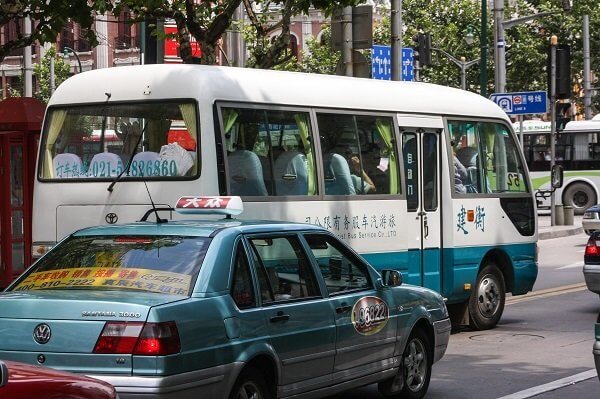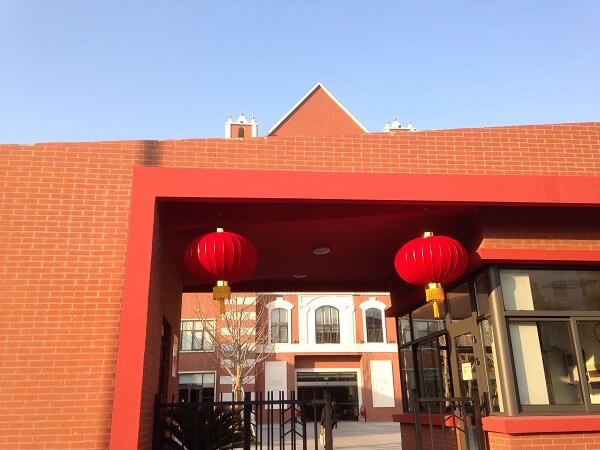Guest blog by International School Community | Recently edited and updated by Teaching Nomad
There are 8,000+ international schools dispersed throughout the world, and 550+ are in China alone. In countries that have a lot of international schools, like China, you’ll find a number of schools that utilize American, British, or international curriculum (e.g. DP, IPC, etc.).
In this article, we would like to highlight some pros and cons of working at an international school in China. Using the International School Community website’s database, we found 103 international schools in China that have had comments submitted on them by members.
Finding out what life really looks like while teaching in an international school in China is the key to figuring out what you want to get out of your international job search. Even if teaching in China isn’t your first choice, after learning about the international school opportunities available, you might reconsider.
It’s likely that China is very dissimilar to your home country, so it’s important to keep an open mind and learn the ins and outs of living and working in a city in China before making a decision.

Although there are many international schools in Shanghai, there’s also a huge number of them all over China.
Things to consider when looking for a teaching position in an international school overseas:
The School Building
Who wouldn’t want to work in a state-of-the-art and purpose-built school building? In fact, many international schools in China do have such a building, but just like in other countries, there’s a wide range in the quality level of different campuses.
Newly built schools are often nicer than older schools, but this is not always the case. It’s best to find reviews of the school you’re interested in or ask your recruiter to put you in touch with someone that currently works there to get their opinion on the campus and amenities.
If you are considering working in Beijing, here is a comment about Tsinghua International School –
“The school building is on the Tsinghua campus. It’s on the edge of the Haidian district, a long ways from the more interesting parts of the city. The area around the campus is nice enough; a typical Chinese cityscape. The grounds of the university campus vary from nice, very collegiate, to rundown. The school itself is in a refurbished building. When I worked there, I was told the plan was to build a new school somewhere, and the current school location will be turned over to the Chinese high school. The remodeled floors for THIS are decent; nothing special, but clean and bright. There are only classrooms in the building. PE, and cafeteria are shared with the Chinese high school.”
Here is another firsthand account about a school building in Shenzhen at Buena Vista Concordia International School –
“Beautiful, purpose-built school in the Buena Vista area of Bao’an. All buildings in the residential/commercial area utilize an American Southwest theme with brown and orange being the main color scheme. School has a full-indoor gymnasium, outdoor soccer pitch and track, space for art and music, as well as four large lab areas.”
The Journey to Work
A big concern for anybody that works full-time is the length of the commute to work and the available transportation options. Many international schools in China organize coaches that shuttle you from the area in which you live to your workplace. When looking for an international school to work in, you’ll want to figure out where it’s located compared to where you’d like to live, to make sure that everything works out well in the end.
Here is a comment about the location of Concordia International School in Shanghai –
“The school’s location is ideal. It only takes about 35 minutes to get to the airport. It’s also close to the city center. Most faculty and staff walk to school or ride a bike. It probably takes about 10 minutes to walk to school.”

A coach in Shanghai
Another comment about the location of Guangdong Country Garden School in Foshan –
“The campus is located in a very large residential community near the border of Foshan and Guangzhou. It takes about 2 hours to get from the school gate to the center of Guangzhou if using buses, or about half that time if you have a private driver. You will never find a normal metered taxi near the school. It feels isolated and boring here, and very few people here speak any English.”
Some people want to be right in the center of the action near other native English speakers, but some people want to be in a more rural area. You’ll find international schools in both types of areas, you’ll just need to figure out which one you’d prefer to be in.
Hiring Policies
Hiring policies vary quite a bit between international schools, so you’ll want to be sure that you’re getting yourself into a good situation. Some international schools are really strict on hiring qualified teachers with experience, and others are willing to hire teachers without the correct certifications.
Here is what someone had to say about Xi’an Hi-Tech International School –
“Potential staff need to be professionally qualified in their own domicile, preferably with public school work experience. The age limit is 55. Native speakers having taught in an IB school will receive priority. Those willing to be trained will be also considered favorably.”
In another part of China, here is a comment from a teacher who worked at Yew Chung International School in Shanghai –
“They rely a lot on hiring people who are recommended by current employees. You still go through the interview process, etc. My initial contact to the school was through a connection I had to somebody already working here. Interviews are usually long-distance phone calls or over Skype.”
Expectations of Teaching Staff
Before taking a new job at an international school, you’ll want to find out what the workload is like. It’s helpful to hear what the teachers are actually saying about their work/life balance.
At Western International School of Shanghai, one current teacher said –
“The workload is without a doubt high, but it can be expected in such a competitive environment as Shanghai. WISS is involved in dozens of programs and activities concurrently at any given time, which means a high workload for the teachers involved. Extra-curricular activities are a must and so is one Saturday in the “Saturday School Program” per year.”

The main gate at Dulwich College Suzhou
Another teacher who worked at Dulwich College Suzhou in Suzhou wrote –
“Very high expectations. Be prepared to work hard; long days, lots of meetings, evenings and Saturday events. CCAs on a point system but basically one each of the three terms.”
Salary Packages
No matter what type of school you decide to work in, there will be a fairly large range in salary packages offered. The average pay at international schools can usually range anywhere in between 15,000 – 35,000 RMB per month. Your qualifications and experience are the deciding factors as to which end of the salary range you’ll end up on. Though this is a large salary range, international schools often pay the best out of all types of schools.
You can look through positions that require a teaching license or degree in Education here, as this is where you’ll make the most money.
If you’re interested in any of the schools mentioned in this article, please contact us at [email protected] to learn more!

For more firsthand comments about working at international schools in China, check out the International School Community website. We are the “go-to” website for up-to-date information about the life of international school educators.

